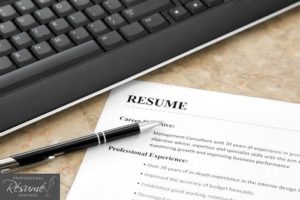Searching for a new job while being employed presents plenty of challenges. You have to be extra careful when you’re conducting your search, because you don’t want to burn any bridges or seem untrustworthy. The best executive resume writers can help tailor your resume to be confidential, so it won’t be as easy to identify you on a job board. There are many secrets to conducting a confidential executive job search, and here are a few of them we would like to share with you.
Be Creative With Networking
The hidden job market is the best way to go about conducting a secret job search. Nowadays, you don’t have to post your executive resume bio online to get a job. By networking at professional events or through LinkedIn, you can find out about jobs you didn’t even know were available. Even volunteering or being involved in your community can lead to new opportunities, so being active can move your job search forward as well.
Use LinkedIn Carefully
If you don’t have your LinkedIn settings updated appropriately, your connections may be able to see every change you make. Chances are your co-workers, or even your bosses, may be included in your LinkedIn network. You definitely don’t want them to see you update your resume or profile to indicate you’re looking for a new job. When you’re working on your LinkedIn profile development, alter your settings to ensure the wrong people don’t see any changes you’ve made.
Make Your Resume Private
As mentioned, the best executive resume writers know how to effectively make a resume confidential. By using the term “confidential applicant” instead of using your name, you’ll avoid showing up on your current employer’s search for a new candidate. Also, not using your company’s name anywhere on the resume is important. These are just a couple ways you can make your resume private, and a potential employer will understand why you’re doing it.
Conduct Your Job Search On Your Own Time
Nothing is worse than conducting a job search on company time. If your current boss finds out, there’s a chance you could be fired. And if your potential employer finds out you’re conducting your search on company time, they may think you’ll do the same to them and not offer you a job. Do yourself a favor and only send out your executive resume bio when you’re not on company time.
Professional Resume Services is here to help you conduct a confidential executive job search. We have the best executive resume writers to help you in this area, so you can feel confident sending in your resume to potential employers. Feel free to reach out to us at any time if you need other secrets to pulling off a confidential job search.
Making a mistake in your executive resume can be detrimental to your success in landing your next job. Even if you use the best executive resume format imaginable, a typographical errors shows you could lack attention to detail, which is an important characteristic of any executive.
Proofreading your executive resume is essential, but proofreading it the right way is even more important. When you’re working on your resume for several hours, it’s easy to overlook a mistake. Here are some of the top ways you should proofread your resume.
Proofread Out Loud
When you read your resume out loud to yourself or to someone else, you’ll be able to identify some obvious issues. Whether the issues revolve around the overall flow of your resume or a word that simply doesn’t make sense, sometimes reading it out loud will help identify problems you overlook when reading it silently.
Don’t Skip Sections
The key to writing resumes that get you hired is to treat every section of your resume with equal importance. If you have a references section, proofread the phone numbers or other contact information. It’s easy to skip sections like this, but it will look unprofessional if your potential employer calls a wrong number when trying to reach your reference.
Have a Peer Review Your Resume
Your peers can play a big role in your effort to create resumes that get you hired. Ask a friend or family member you trust to look over your executive resume in detail. When you’ve looked at your resume for several hours over the course of a few days, sometimes it’s easy to overlook minor details. Having a peer review your resume can help identify these minor issues to clean up your resume overall.
Hire a Professional Resume Service
Hiring a quality professional resume writing service to proofread your resume should be your last step before finalizing your resume. But just because it’s the last step doesn’t mean it should be skipped. With the highly competitive job market today, having a professional proofread your resume can ensure it is in the best shape possible for improving your chances of getting an interview.
At Professional Resume Services, we can help executives not only write their resumes, but proofread them and provide constructive criticism and suggestions to make it better. If you are pleased with your resume, but want another set of experienced eyes to review it, feel free to reach out to us at any time.
 Many executives forget a job isn’t theirs until they sign on the dotted line to become employed with the company. Receiving a job offer is great, but some mistakes could lead to the offer being withdrawn. You’ve worked so hard to get your executive resume bio in shape to get recognized, land an interview and ultimately get a job offer. Here are some of the common mistakes you need to avoid both before and after receiving a job offer.
Many executives forget a job isn’t theirs until they sign on the dotted line to become employed with the company. Receiving a job offer is great, but some mistakes could lead to the offer being withdrawn. You’ve worked so hard to get your executive resume bio in shape to get recognized, land an interview and ultimately get a job offer. Here are some of the common mistakes you need to avoid both before and after receiving a job offer.
Not Being Honest
Don’t tell your interviewer you have another job offer elsewhere if it isn’t true. Similarly, don’t lie about the salary at your current position or previous position. Employers have the right to look at this information for verification before they make a job offer. If you’re caught in a lie, they may question your entire executive resume bio and not give you an offer.
Not Keeping Your References Informed
Your references on your executive resume could be critical in getting you a job. However, any of the top resume writing services will tell you to always keep your references informed when you send in a resume. Employers often call those references, so you don’t want them to be surprised when it happens. You want your references to be prepared so they can discuss your past work most effectively.
Negotiating Too Much or Too Early
Negotiation is part of the interview process for executives. However, there’s a time and place for negotiating, and doing it too early or too often could make an employer uncomfortable enough where they won’t offer you the job. You are entitled to fair pay and benefits, but there has to be some give-and-take as well.
Social Media Blunders
Potential employers almost always look at social media profiles because it gives them insight as to who you are. Use a LinkedIn profile service to get your Linkedin profile cleaned up from a professional standpoint. Also be careful not to post any photos or commentary that could be offensive or otherwise hurt your chances of not looking and sounding professional. Social media is a valuable tool, but it can also be extremely costly when not used appropriately.
Professional Resume Services is one of the top resume writing services in the industry. Not only can we help you write an effective resume to boost your chances of landing an interview, but we also have valuable tips about various stages of your executive job search. Feel free to contact us at any time if you’re struggling with your job search.
What you say during your executive job interview plays a huge role in determining whether you get the job. On the same notion, your body language is a factor as well. You’ve worked hard to optimize your LinkedIn profile to get noticed and eventually land an interview, so learning some body language tips will help you succeed once you get there. Here are some of the top executive interview tips people don’t think about, but should.
Eye Contact Demonstrates Trust
Always make eye contact with your interviewer. Eye contact shows they can trust you, since people who don’t make good eye contact might have something they’re hiding. Of course, try to avoid staring as much as possible, so looking away occasionally will reduce some awkwardness.
 Firm Handshakes Show Confidence
Firm Handshakes Show Confidence
Follow up your strong executive profile with a strong handshake when you meet your interviewer. A firm handshake shows you are a confident person, so practice with peers or family members if you have to. A good handshake is memorable to an interviewer, since it’s likely the first in-person impression they have of you.
Have Good Posture
No interviewer wants to see a slouch in chair across from them. Slouching or posture other than sitting up straight shows you may not be too interested in the job. Even worse, slumping in your chair may indicate a lack of confidence, no matter how strong your executive profile is.
Be As Natural As Possible
Too many people spend way too much time studying interview questions and rehearsing their answers. While this is good to an extent, studying too hard can make you sound unnatural. If you used an executive resume writer to polish up and make your resume sound natural, translate some of their tips for your interview. Things like nodding and smiling are natural gestures, so don’t hold them back. The hard part is noticing the gestures you make as a nervous habit, so be careful not to use them to the point where they become unnatural.
Professional Resume Services does much more than simply write resumes. We can help you by giving advice on how to land interviews, what to do in interviews and even how to optimize your LinkedIn profile, just to name a few. Be sure to reach out to us if you need any assistance with any aspect of your executive job search.
 Many executives make the mistake of simply rewriting their resume and calling it their biography. Including a lot of numbers, statistics and data may look impressive, but it’s not necessarily what needs to go on an executive profile. This is your chance to tell a story about your career that you can’t necessarily state on a resume. You should also reiterate and strengthen your brand when writing an executive bio. Here are some tips for what to include in your c-level executive biography.
Many executives make the mistake of simply rewriting their resume and calling it their biography. Including a lot of numbers, statistics and data may look impressive, but it’s not necessarily what needs to go on an executive profile. This is your chance to tell a story about your career that you can’t necessarily state on a resume. You should also reiterate and strengthen your brand when writing an executive bio. Here are some tips for what to include in your c-level executive biography.
The First Paragraph Must Grab Attention
If the first paragraph of your executive profile is bland, you’ll quickly lose the attention of your reader. Instead, start off your bio with a quote that highlights your brand, or make a strong statement to capture your reader’s attention another way. The more attention-grabbing the first sentence and paragraph is, the better chance you’ll have of the reader reading the entire biography.
Highlight Soft Skills And Attributes
You can’t include soft skills on your executive resume, in most cases. When writing an executive bio, you have a chance to not only demonstrate your soft skills and attributes, but also tie them in to how they enhance your brand and bring value to companies. Provide examples of how you’ve applied your skills in the past to bring them to life.
Support Your Success With Data
You shouldn’t pollute your entire executive profile with data, but sometimes it’s appropriate to provide some numbers for support. However, think of data you don’t already have on your resume. And instead of simply making a one-line statement to support your success, tell the story of how you were successful, including all the twists and turns. Just don’t take up too much of the reader’s time when you do so.
Provide Some Personal Insight
An executive resume service can help you write the first aspect of your bio, but there’s another point they can’t help you with as much. The part which deals with your personal life. You don’t want to get into many details about your life, but people want to know if you have a family, what ages your kids are, what your spouse does and what your hobbies and passions are. People connect with other people based on their personal interests rather than business success. When you have similar personal interests with other executives, they’ll be more likely to reach out to you since it seems like a natural fit.
At Professional Resume Services, we can help you piece together your executive profile to help it flow naturally. One of the hardest parts of an executive bio is making it easy to read and captivate the reader’s attention. When you’re ready to sit down and write your c-level executive biography, consider giving us a call to help you get started.
With the world of automation today, it can be virtually impossible to get your executive resume into human hands if you only submit it online through job boards. It may be much easier and convenient to send in your resume online, but there’s no guarantee it will ever been seen. Recruiters will scan resumes for certain keywords and keyphrases using technology in order to eliminate as many as possible. If yours isn’t formatted perfectly, or if you don’t use the right words, it will be quickly brushed off.
So how can you write resumes that get you hired, but have a better chance of getting them into human hands? Here are a few tips to consider.
Optimize Your Keywords
Keywords are the most essential component of any effective resume. Any executive resume writer will look at your skills, qualifications and accomplishments and simply reword them to use appropriate keywords for your industry. This is the best chance you have at getting your executive resume through the automated keyword filter.
 Look For Connections
Look For Connections
Sometimes the best way to get your resume into human hands is to bypass technology completely. When you make connections with people in your industry, you may not even have to send in a resume online. You still have to focus on writing an effective resume, so don’t think your connection will guarantee you an interview. It’s just one of the best ways to get around the initial resume submission stage.
Be Short and Concise
No one wants to read a long resume. You have an average of six seconds to impress a recruiter or HR manager. The first thing an executive resume writer should do is look how to tighten up sentences and sections. Try to keep your resume to two pages or less, but the shorter the better.
Choose Your Approach Carefully
Whether you choose to submit your resume online or in person, following up with the company is important to know where you stand. Sometimes your resume is filtered out right away because of keywords, but sometimes it could have been lost in the shuffle. Without checking in periodically, you may never know. Just be careful not to follow-up too much to the point where you look desperate.
Professional Resume Services helps executives with writing an effective resume every day. Our skilled professionals know the tricks to getting resumes into human hands, so if you are struggling with the process or need assistance in any way with your job search, feel free to contact us at any time.
With the widely known importance of writing an effective resume, more companies are popping up claiming they write the best ones. Choosing an executive resume service is a big decision relating to your executive career. It’s easy for these services to claim to be the #1 service, but how do you really know they aren’t just using a standard template and switching things around to make yours look unique?
There are plenty of ways to distinguish a legitimate executive resume writing service from a fraud. Here are some things to consider when you’re looking for one.
Make Sure They Are Experts In Your Industry
If the resume service doesn’t indicate specific industries they have experience in, then you may need to look elsewhere. Resumes have to be very specific and specialized. If they aren’t, recruiters will see right through them.
Ask For Credentials or Certifications
When you contact an executive resume service, the writer should be able to provide you with one or more certifications. Those certifications could include:
-
- Certified Expert Resume Writer (CERW)
-
- Certified Professional Resume Writer (CPRW)
-
- Certified Master Resume Writer (CMRW)
- Certified Executive Resume Master (CERM)
While these aren’t the only certifications and credentials available, your resume writer should be able to show proof of at least one of them.
Check Out Any Samples
Any executive resume service should have an abundance of samples to provide you. Sometimes the key to writing a professional resume is incorporating different ideas from other resumes into your own. This is a good practice for writing your own resume, but the best resume writing services will treat you as a unique individual instead of just another resume. Samples should be available, but only for your own benefit.
Talk to An Actual Resume Writer
It’s always important to call an executive professional resume service prior to hiring them. If you talk to a sales person who only offers you their different services instead of learning about you, then you need to look elsewhere. A good company will ask you insightful questions about your career, accomplishments and achievements to get a complete understanding of your background. This could be in the form of an online survey, a phone interview, an in-person interview or a combination of these. The more questions they ask you, the better you should feel about their service.
At Professional Resume Services, we take the time to get to know the backgrounds of each of our executives. We can’t write your executive bio unless we know your complete career history, accomplishments and aspirations, so gathering as much information as possible before getting started is key. Feel free to contact us to learn more about our services and how we can be the right executive resume service for you.
After spending hours on your resume, the easy thing to do is just copy and paste the information over to your executive LinkedIn profile. While this makes sense on the surface, since LinkedIn provides the same type of information as your resume, it’s one of the worst things you can do.
Recruiters do diligent research on candidates and look at many different platforms to learn as much as they can about you. If they see your resume copied over to your LinkedIn profile, it shows your lack of creativity and potential disinterest in finding a new job. While there are some similarities between your resume and LinkedIn profile, there are many more differences between the two.
What to Include on Your Resume
The best resume writing service can help you pick out the biggest points and facts from your career up to this point and display them on your resume. This is the document where you need to be cut-and-dry by highlighting specific experiences and accomplishments. You shouldn’t have a lot of text next to each bullet point on your resume, because you need to remember a recruiter spends an average of about six seconds reading any given resume and doesn’t want to read a bunch of fluff.
What to Include on Your LinkedIn Profile
Your executive LinkedIn profile gives you the opportunity to tell the backstory on those short bullet points you have in your resume. You don’t have to tell your complete life story (and it’s recommended that you don’t), but you can give a little background to put your achievements into perspective.
When you’re working on your LinkedIn profile development, you also need to be more general instead of targeted. Your LinkedIn network is full of diversity, so you could be missing out on opportunities by being specific about your role and interests. This goes against how a resume is crafted, but it’s important to make the distinction.
Always Separate The Two When Job Searching
When you’re searching for an executive position, you never know if your resume or your executive LinkedIn profile will be viewed first by a recruiter. The two are similar only because they are tools to help you land a new job. The content may be similar, but it should be displayed very differently. Keeping the two separate and distinct will help your job searching efforts tremendously.
At Professional Resume Services, we work every day to help executives with LinkedIn profile development and resume writing. It’s difficult to wrap your mind around how different these two are, but we are here to guide you on the right path. Feel free to set up a time to talk if you have questions or need assistance with any aspect of your executive resume or LinkedIn profile.








